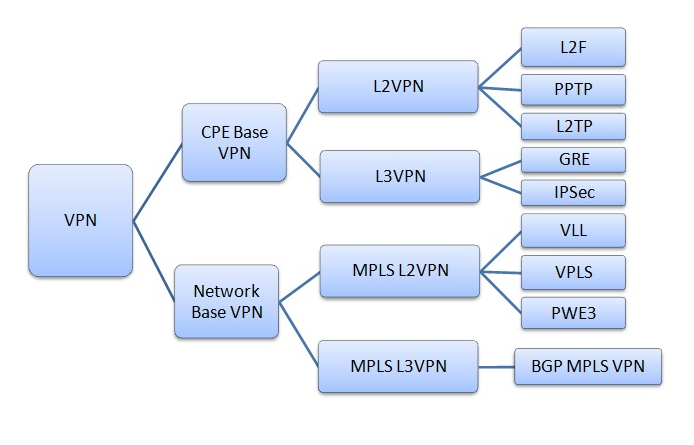
There are many ways to secure your network traffic with a VPN. In this article, you’ll learn about the different layers, such as Layer 3 and Application-layer VPN. If you don’t know what these different types of encryption are, you may be unsure of how they work. Read on to learn more about each of these protocols and what they do. Ultimately, you’ll be able to choose the best VPN for your needs.
Layer 3
Layer 3 VPNs are a type of private connection that uses a combination of IP-based and MPLS networking technology. They are usually used for sending data in the back-end of a VPN infrastructure. Layer 2 VPNs were more common before, but Layer 3 has recently gained popularity. Below are some of the pros and cons of Layer 3 VPNs. All three types of VPNs are secure, but there are some important differences.
A virtual layer 3 switch can be used for a number of purposes. It can route traffic between corporate locations. Its primary function is to route traffic between two or more virtual networks. A VPN server must have the necessary resources to create a virtual layer 3 switch. It must also be configured to allow connections from other virtual networks. In addition to virtual switches, it must also have a routing table. In some cases, VPN servers will require Multiprotocol BGP to use the service.
Application-layer VPN
An application-layer VPN is a kind of virtual private network that provides secure remote access to a variety of applications and network resources. Application-layer VPNs differ from traditional IP Security (IPSec)-based VPNs, which operate at the Layer 3 level of the Open Systems Interconnection model. They provide more control and visibility into application data, and they present new opportunities for security policy enforcement. This article will discuss the benefits of application-layer VPNs and what they can do for your organization.
The main benefit of using Application-layer VPNs is that they protect your sensitive information. This type of VPN works by encrypting data as it travels from the user’s computer to the application layer proxy. Typically, SSL connections are used for this purpose. However, you can protect other applications with Application-layer VPNs, too. The key is to find a software application that supports this security layer. Otherwise, you could end up with an insecure connection and lose valuable data.
Layer 2 VPN
If you have ever wanted to connect two computers together without the need for a physical network, you have most likely heard of Layer 2 VPN. It is a type of computer networking service that Internet service providers use to allow their customers to send and receive data through an IP network. This type of VPN is a service that many Internet service providers sell to businesses. If you’re wondering what a Layer 2 VPN is, here are some details you should know.
The term Layer 2 VPN refers to a group of sites that are connected at the second layer of the computer network. They typically consist of Frame Relay data link connection identifiers, Point-to-Point Protocol sessions, and ATM virtual circuits. IP routing takes place at the edge of the Layer 2 network. A Layer 2 VPN service provider’s routers carry the Layer 3 traffic between a customer’s sites and a service provider’s. Customers must know which VPN interfaces connect to which sites.
Layer 4 VPN
A Layer 4 VPN is a type of VPN that works on a transport layer, above the network layer. Because it sits above the network, a Layer 4 VPN session remains open even when the client switches from one IP carrier to another. As a result, it is more secure and reliable than other types of VPN. The primary benefit of this type of VPN is that it does not require special network infrastructure equipment to operate. In addition, the security and reliability of Layer 4 VPN make it an excellent choice for mobile use.
Layer 4 is higher in the protocol stack than the previous three. This higher level allows intelligent flow control and reduces the amount of overhead. Layer 4 VPN connections are a good choice for secure communications when the user needs the Internet to stay in touch with a partner or work at home. This VPN connection can also be used to protect sensitive data and applications. The cost of a Layer 4 VPN depends on the number of users and the amount of traffic.
MPLS VPN
MPLS VPN employs layer 3 connectivity. As the name implies, it utilizes a router to transport data over the network. This type of VPN connects multiple locations through a single connection. MPLS packets are further encapsulated with an IP and another MPLS label before being tunneled across the backbone to the PE switch. MPLS VPNs use two or more separate tables to store routing information. MPLS VPNs use these routes to provide any-to-any connectivity.
Unlike other types of VPNs, MPLS has many advantages. It can prioritize traffic based on its priority. Unlike traditional VPN connections, which use IP addresses to determine which traffic should be routed to which location, MPLS can provide higher performance. MPLS is also a cost-effective alternative to traditional VPNs. Layer 3 is a popular choice for many companies and organizations. MPLS VPNs are able to handle higher volume traffic because of their higher availability.

ExpressVPN Fast, anonymous browsing all over the world | ||
NordVPN Enjoy online privacy and security with a reliable VPN | ||
Cyber Ghost Browse anonymously with reliable security | ||
SurfShark Affordable and reliable VPN for secure browsing | ||
ZenMate Experience the internet anonymously | ||
Purevpn Keep your data secure with a VPN built for privacy |








